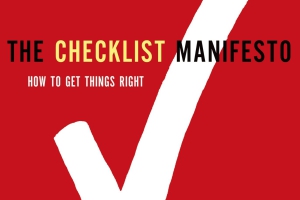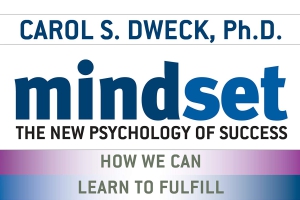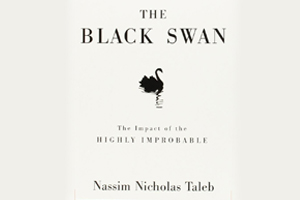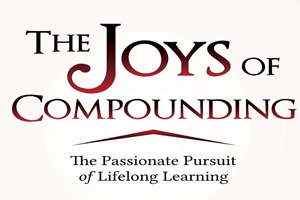Author: Guy Spier
The Education of a Value Investor follows Guy Spier's journey from an investment banker to a true value investor who models his life and ideals after the iconic Warren Buffet and his value investing approach. Value investing has been exemplified by Warren Buffet and several other eminent investors. However, it is imperative to choose a practical approach to value investing with some proven tips and techniques. This will help investors grow their wealth in an ethical and assured manner while ensuring that the investment style remains true to a person's core beliefs. The Education of a Value Investor isn't a 'how to value invest' book. Instead, it is a book with real and tangible lessons. These lessons can be leveraged by investors to improve their investing journey in an honest and authentic manner.
Key takeaways
- Value investing is simply about exercising patience and imbibing a process of continuous learning
- For any value investor, the ability to do fundamental research and understand valuations is of utmost importance
- It is important for investors to create their own investment strategy instead of copying the strategies of famous investors. However, it is equally important to take inspiration from them and learn from their successes and mistakes
- Inaction and patience are almost always the wisest options for investors in the stock market
- The biggest source of learning is through mistakes. Thus, investors should allow themselves to make mistakes and learn from them
Ego is the biggest enemy of an investor
Value investment is a term that sounds simple but requires extensive practice to master. This makes it important to gain an understanding of the concept through your own experience and through the learnings and experiences of experts. The most important message, when it comes to value investing, is: Nothing matters as much as bringing the right people into your life. They will teach you everything you need to know. It is true that we must learn from the mistakes and accomplishments of people we look up to as that is the path to true glory and success. Indeed, the journey of prominent value investors can change people's opinion on investing as they traverse through the volatile land of investments. The entire pursuit of value investing requires you to see where the crowd is wrong so that you can profit from their misperceptions. This requires you to shift to measuring yourself by an inner scorecard. The real goal is not acceptance by others, but acceptance of oneself.
The bottom line is that if you keep learning all of the time, you will have a wonderful advantage.
There are three lessons on what really makes a great investor, imbibed from Warren Buffet.
- If a business forces you to throw your morals out of the window, leave it
- Investing doesn't stop at money, so invest in people too
- Financial crises are great opportunities for value investors
Authenticity
It is important to be extremely authentic in all financial transactions. You have to be the best possible version of yourself. While many investors might believe that following a proven path can lead to proven results, you must avoid attempts at imitating top value investors like Warren Buffet. Rather, you should work towards knowing your own self and being extremely self-aware. While you can and should look up to top value investors and learn from great names like Warren Buffet, Peter Lynch, and Benjamin Graham, you should not tie yourself to their formulae or try to repeat their success. It is imperative that you remember that you are an individual with your own unique personality.
Thus, you are likely to have your own investment style. Discover this style and stay true to it. Thus, it is always better to create your own path and investment strategy instead of simply aping a winning formula. Always remember that advantages are often created imperceptibly, step by step. Most people succeed because they get a lot of small things right. You should learn to take more and more intelligent but practical actions on a micro-level. Over a lifetime, a multitude of these simple actions can accumulate to create big reputational and relational advantages.
Personal Scorecard
The second important lesson is that you must learn to live by your own internal scorecard or personal standards and morals. You should judge yourself by your own personal standards and proactively work towards self-improvement rather than indulging in comparisons with the standards and accomplishments set by other investors – also termed as an outer scorecard. The process of self-correction begins with self-knowledge. Investing has a way of exposing our psychological fault lines. However, you have to live your own life rather than follow the dictum put forth by famous names. The key here is to measure your own personal growth as an investor by studying your own investment style and individual investments to ensure that you embark on a route towards true value investment. Creating the right environment and network helps to pave the way towards a comfortable value investing journey.
Self-improvement
An essential component of being a good investor is to learn from your mistakes. Your mistakes and failures offer you a priceless opportunity to learn more about yourself and identify areas of improvement. Therefore, in order to achieve sustainable success, you need to confront your vulnerabilities whatever they may be. Otherwise, you are building your success on a fragile structure. Further, you should also adopt an open mind and learn from others. It is necessary that you decipher the investing mistakes made by great minds and how they managed to learn from them. You can also refer to Benjamin Graham and Warren Buffet to pick up learnings from their investment styles. Potential value investors can follow their lead in learning from mistakes and studying accomplishments to become proven legends in the investment world. You should study proven investment strategies and the way successful investors apply value investment in their funds. You can also refer to several anecdotes about successful and less successful investments made by famous investors, which will take you on a personal journey filled with learning and insight. This can be extremely beneficial to you if you are an aspiring value investor. Indeed, you should look at such anecdotes as less of an investing manual and more a memoir of investors who have undergone tremendous personal transformation and wish to share the lessons they have learned to propel us towards a fulfilling journey of value investment.
Adopt a structured approach to investing
It will help you enormously if you start thinking about your own investment processes in a structured and systematic way. Here are some of the rules, routines, and habits that you should consider putting in place:
- Stock prices are in a constant state of flux. However, you should check stock prices as infrequently as possible.
- Before buying something, always make sure that the seller has no self-interest in selling the investment to you.
- Avoid talking to CEOs and other management. The exception to the rule: Warren Buffett and some other managers who have a reputation for sharing what they would like to know, if they were in their shareholder's shoes.
- Gather investment research in a systematic manner. Rule: pay attention to the order in which you consume information because this matters greatly.
- Start with the least biased and most objective sources: typically, the corporate public filings including the annual report, and proxy statement
- Next move to earnings announcements, press releases, transcripts of conference calls
- Books about the company or its founder
- Equity reports by brokerage firms
- Discuss your investment ideas only with people who have no vested interests and are not biased against you. Rule: pool your knowledge with other investors but stick with people who can keep their ego in check. Ground rules for investment discussions:
- The conversation must be strictly confidential
- Neither person can tell the other what to do
- Don’t have any business relationship
- Never buy or sell stocks at market open. Let stock prices settle down before you enter the market
- If a stock falls immediately after you buy it, resist the urge to sell it. Instead, be prepared to hold the stock at least for a period of 2 years
- Your investments are your business. Don't talk endlessly about them and make them a public matter.
- Instead of asking what a company will earn next year, it is more useful to ask, “what needs to happen for this company to generate a lot of cash next year?
These rules are not fixed and non-agile. Their main purpose is to guide you in your investment journey and in general lead you towards a healthier direction.
An Investor's Checklist, Survival Strategies from a Surgeon
Investing requires the same kind of meticulous and studied approach as surgery. Thus, the best way is to better your investment Checklist Manifesto. This can help you avoid obvious and predictable errors. Some of the ideas that must form a part of the checklist include:
- Is there some way in which this investment idea is being sold to me?
- Does someone in this situation have an axe to grind?
- Who benefits if I make this investment?
- Does this investment appeal to any personal biases of mine that should be re-examined?
- Are any of the key members of the company's management team going through a difficult personal experience that might radically impact their ability to act for the benefit of their shareholders?
- Has this management previously done anything self-serving that appears dumb?
- Does this product offer good value for money?
- Is this company providing a win-win for its entire ecosystem?
- How does this company sit within the value chain? What parts of this business could be impacted by other changes in the value chain that this company has very little influence over? (he wants to invest in companies that have control of their own destiny)
- Is this investment cheap enough, not just in relative terms?
- Am I sure that I am paying for the business as it is today, not for an excessively rosy expectation of where it might be in the future
- Does this investment satisfy me psychologically by meeting some unmet personal need? For example, am I keen to buy it because it makes me feel smart?
The lessons learned along the journey as a value investor can come in handy to all prospective investors who wish to create value from their portfolios. Indeed, practical advice on how to chart a path to true value investment while holding on to their morals and ethics is necessary for those of us who wish to develop a value investor profile.
Value investing, as exemplified by the likes of Warren Buffet and Guy Pierce, can potentially help individuals on their path to long-term wealth generation. However, direct stock investing by adopting the value approach can be highly challenging for an investor. Fortunately, there are other ways of reaping the benefits of value investing. Investors can consider investing in mutual fund schemes that adopt the value approach to investing. Mutual funds are managed by professional fund managers and supported by an extensive research team that is well positioned to do the relevant research and make optimal investment decisions. Mutual fund schemes that follow the value investment approach invest in stocks of companies that have high future growth potential and are available at compelling valuations. By investing through such schemes, you can not only reap the benefit of value investing but also have the advantage of professionally managed funds where investment decisions are taken by experts in the best interest of the investor.
An investor education initiative
All Mutual Fund Investors have to go through a onetime KYC process. Investor should deal only with Registered Mutual Fund (RMF). For more info on KYC, RMF and procedure to lodge/redress any complaints – please visit onhttps://www.edelweissmf.com/kyc-norms
MUTUAL FUND INVESTMENTS ARE SUBJECT TO MARKET RISKS, READ ALL SCHEME RELATED DOCUMENTS CAREFULLY.
Trending Books
MUTUAL FUND INVESTMENTS ARE SUBJECT TO MARKET RISKS, READ ALL SCHEME RELATED DOCUMENTS CAREFULLY.

















